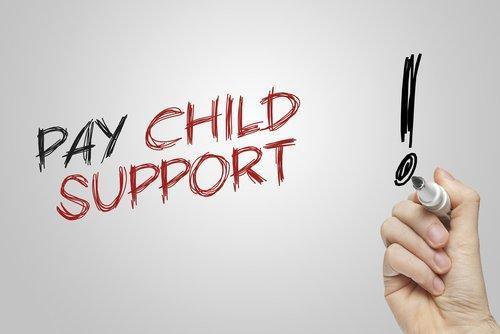Recent Blog Posts
College Expenses after Divorce
Posted on January 07, 2016 in Finances and Divorce
 Not all parents agree that they need to contribute to their children’s educational expenses past the high school level. Some parents believe having a child work in order to pay for college expenses builds character, and for other parents, it is an expense they cannot afford. When parents’ divorce, the question of whether or not they will contribute to their children’s college expenses may be decided by a judge. In Illinois, courts can order parents to contribute to their children’s educational expenses, including college expenses.
Not all parents agree that they need to contribute to their children’s educational expenses past the high school level. Some parents believe having a child work in order to pay for college expenses builds character, and for other parents, it is an expense they cannot afford. When parents’ divorce, the question of whether or not they will contribute to their children’s college expenses may be decided by a judge. In Illinois, courts can order parents to contribute to their children’s educational expenses, including college expenses.
Illinois law provides that in some cases, after receiving a petition from one of the parties, a court may award funds from a couple’s property or income, to be used for a child’s higher education expenses. If a parent is deceased, the court may order expenses to be paid from the parent’s estate. Generally speaking the educational expenses a court may order are for an undergraduate education, or for trade school. A parent who wishes to challenge a petition for college-related expenses has to show the court good cause why the petition should not be granted. If one parent has financial hardships, for example high personal student loan debt, they may argue that they should not be responsible for the child’s college expenses.
Continue Reading ››
Attorney Fees: Are There Illinois Divorce Lawyers Who Work on a Contingency-Fee Basis?
Posted on January 05, 2016 in Finances and Divorce
 For individuals needing legal assistance but who are low on funds and assets, a contingency-fee arrangement can seem like the ideal way to secure quality legal representation. In a contingency-fee arrangement, the client agrees to pay the attorney a portion or percentage of the value of the recovery the attorney is able to secure for the client. In most contingency-fee arrangements, the client is not obligated to pay any attorney’s fees to the attorney if he or she is unable to recover any award or compensation for the client (although there may be certain administrative fees or other case-related costs the client is still responsible for paying.)
For individuals needing legal assistance but who are low on funds and assets, a contingency-fee arrangement can seem like the ideal way to secure quality legal representation. In a contingency-fee arrangement, the client agrees to pay the attorney a portion or percentage of the value of the recovery the attorney is able to secure for the client. In most contingency-fee arrangements, the client is not obligated to pay any attorney’s fees to the attorney if he or she is unable to recover any award or compensation for the client (although there may be certain administrative fees or other case-related costs the client is still responsible for paying.)
Obtaining quality legal representation during a divorce may seem too costly for some individuals. Can Illinois attorneys accept divorce or family law cases on a contingency-fee basis?
Continue Reading ››
What Is a Guardian Ad Litem in Illinois?
Posted on December 30, 2015 in Child Custody
 Some divorces and child custody battles can become very contentious, and in these cases, a child’s interests may be served through the appointment of a representative known as a guardian ad litem, who is tasked with advocating solely for the child’s best interests in the proceedings.
Some divorces and child custody battles can become very contentious, and in these cases, a child’s interests may be served through the appointment of a representative known as a guardian ad litem, who is tasked with advocating solely for the child’s best interests in the proceedings.
Illinois law allows for the appointment of a guardian ad litem in any case that involves child support, visitation, custody, education, parentage, or general welfare of a child. A guardian ad litem may be appointed by a court, sometimes as a routine procedure, or by request of any party in the proceedings. A guardian ad litem is supposed to make recommendations through a written report to the court to help the court render a judgment that is in the child’s best interest. In order to write the report and make recommendations to the court, the guardian ad litem is required to interview the child involved in the case, as well as the parents and any other available witnesses. Either party can question the guardian ad litem in court as to the content of their report.
Continue Reading ››
Enforcement of Out-of-State Child Support Orders
Posted on December 29, 2015 in Child Support
 Enforcing a child support order when you and the supporting parent both live in the same state can be a hassle in and of itself. When the supporting parent moves to another state, the process can become even more confusing. Luckily, thanks to the standardization of child support laws throughout the country, states will typically assist you in enforcing a child support order issued by another state if the supporting parent is found to be located in that other state. Likewise, if you move after having been awarded child support and begin to reside in a new state, that new state will be able to assist you in enforcing your existing child support order.
Enforcing a child support order when you and the supporting parent both live in the same state can be a hassle in and of itself. When the supporting parent moves to another state, the process can become even more confusing. Luckily, thanks to the standardization of child support laws throughout the country, states will typically assist you in enforcing a child support order issued by another state if the supporting parent is found to be located in that other state. Likewise, if you move after having been awarded child support and begin to reside in a new state, that new state will be able to assist you in enforcing your existing child support order.
Assistance with Enforcement May Not Necessarily Mean Assistance with Modification
Continue Reading ››
Should You Take Your Divorce Case to Trial?
Posted on December 23, 2015 in Divorce
 As part of the Illinois divorce process, if a divorcing party is not able to resolve all of the pertinent divorce-related issues present in their case, the case will proceed to a “trial.” This is not like the trials you may see on popular television shows: this trial will be in front of the judge assigned to your case, and will not be heard by a jury. The only people that will be present will be the parties themselves, the attorneys for each of the parties, and any witnesses the parties intend on examining for the purpose of helping the court decide the unresolved issue(s). Although a divorce “trial” typically lasts much shorter than a civil or criminal trial that is to be decided by a jury, divorce trials can nonetheless be equally draining and costly. So how do you know when you should attempt to settle your divorce case and when you should proceed with a trial?
As part of the Illinois divorce process, if a divorcing party is not able to resolve all of the pertinent divorce-related issues present in their case, the case will proceed to a “trial.” This is not like the trials you may see on popular television shows: this trial will be in front of the judge assigned to your case, and will not be heard by a jury. The only people that will be present will be the parties themselves, the attorneys for each of the parties, and any witnesses the parties intend on examining for the purpose of helping the court decide the unresolved issue(s). Although a divorce “trial” typically lasts much shorter than a civil or criminal trial that is to be decided by a jury, divorce trials can nonetheless be equally draining and costly. So how do you know when you should attempt to settle your divorce case and when you should proceed with a trial?
Continue Reading ››
Parental Rights: Who Gets to Determine My Child’s Religion?
Posted on December 22, 2015 in Child Custody
 Marriages in which the spouses come from different faith traditions are now more common than ever. When such a couple first marries, religious-themed conflicts are often low because either the couple does not place a high priority on observing their families’ religious practices or the couple is eager to learn about their spouse’s religious heritage. In the latter case, this may lead to one spouse adopting the faith and religious practices of his or her spouse. When that same couple divorces, however, any differences that exist between the spouses’ differing religious beliefs and practices can become more prominent, especially when that couple had a child. It would be common for the divorcing parents to fight vehemently for the right to determine the religious upbringing of the child and to keep the child from exposure to the other parent’s faith traditions. How does a court decide which parent gets to determine a child’s faith?
Marriages in which the spouses come from different faith traditions are now more common than ever. When such a couple first marries, religious-themed conflicts are often low because either the couple does not place a high priority on observing their families’ religious practices or the couple is eager to learn about their spouse’s religious heritage. In the latter case, this may lead to one spouse adopting the faith and religious practices of his or her spouse. When that same couple divorces, however, any differences that exist between the spouses’ differing religious beliefs and practices can become more prominent, especially when that couple had a child. It would be common for the divorcing parents to fight vehemently for the right to determine the religious upbringing of the child and to keep the child from exposure to the other parent’s faith traditions. How does a court decide which parent gets to determine a child’s faith?
Continue Reading ››
Dispelling Common Child Support Myths
Posted on December 17, 2015 in Child Support
 There are a number of myths circulating about child support in Illinois. Unfortunately, believing one of these myths can cause big legal headaches for you. Learn the truth about child support payments in Illinois:
There are a number of myths circulating about child support in Illinois. Unfortunately, believing one of these myths can cause big legal headaches for you. Learn the truth about child support payments in Illinois:
Myth 1: I Can Send Child Support Payments Directly to the Other Parent
Facts: There are many reasons why it is a bad idea to send your child support payments directly to the other parent. First, if the other parent claims he or she never received your payment, the dispute will descend into a “he said/she said” situation that is difficult to win. Next, submitting your payment to the court (or the agency designated in the child support order) is the surest way to demonstrate to the court that you have satisfied your obligations. Finally, in some cases it may be illegal for the other parent to receive child support directly. In summation, only send your child support payments to the address listed on the order.
Continue Reading ››
What Is a 'Conflict of Interest' and How Can It Impact My Choice of an Attorney?
Posted on December 15, 2015 in Divorce
 Lawyers often develop long-term professional relationships with their clients, especially when the attorney is only one of a handful of attorneys in the local area (as is often the case in rural parts of the state). The same attorney a young couple consults for advice during their first home purchase is likely to be the same attorney the couple goes to when looking to start a new business or when they need to establish and amend their estate plan. The trust and feelings of comfort that such a professional relationship engenders are not easily replaced. When the couple determines that their marriage is not salvageable and a divorce is needed, both spouses may run to the same attorney they have known and turned to for years. Not only may this attorney not be the best choice to handle their divorce, but ethical rules governing conflicts of interest may also prevent the attorney from representing either of the spouses during the divorce.
Lawyers often develop long-term professional relationships with their clients, especially when the attorney is only one of a handful of attorneys in the local area (as is often the case in rural parts of the state). The same attorney a young couple consults for advice during their first home purchase is likely to be the same attorney the couple goes to when looking to start a new business or when they need to establish and amend their estate plan. The trust and feelings of comfort that such a professional relationship engenders are not easily replaced. When the couple determines that their marriage is not salvageable and a divorce is needed, both spouses may run to the same attorney they have known and turned to for years. Not only may this attorney not be the best choice to handle their divorce, but ethical rules governing conflicts of interest may also prevent the attorney from representing either of the spouses during the divorce.
Continue Reading ››
Child Custody Issues: Should I Force My Child to Visit with the Other Parent?
Posted on December 10, 2015 in Child Custody
 The holiday season can sometimes be an especially stressful for children of divorced parents. Between holiday dinners and get-togethers, completing schoolwork that may be assigned over the winter break, and finding time to spend with friends, it is no wonder that some children may be reluctant to spend a weekend or longer with the nonresidential parent – especially if that parent lives hours away from the child’s home or if the child does not have a good relationship with the nonresidential parent. If your child refuses to spend time with the nonresidential parent when it is that parent’s scheduled parenting time, what options do you have as the residential parent?
The holiday season can sometimes be an especially stressful for children of divorced parents. Between holiday dinners and get-togethers, completing schoolwork that may be assigned over the winter break, and finding time to spend with friends, it is no wonder that some children may be reluctant to spend a weekend or longer with the nonresidential parent – especially if that parent lives hours away from the child’s home or if the child does not have a good relationship with the nonresidential parent. If your child refuses to spend time with the nonresidential parent when it is that parent’s scheduled parenting time, what options do you have as the residential parent?
Option 1: Negotiate with the Other Parent
Continue Reading ››
Choose Your Family Law Mediator Wisely
Posted on December 08, 2015 in Mediation
 In certain divorce cases, mediation can be a powerfully effective way for spouses to quickly and inexpensively resolve their differences in a divorce proceeding. Mediation is a form of alternative dispute resolution in which the divorcing parties sit down face-to-face with a mediator. The mediator is supposed to be a neutral third party who encourages the divorcing parties to dialogue about their differences in an attempt to find a mutually-agreeable resolution. Mediation can be used to resolve disputes concerning:
In certain divorce cases, mediation can be a powerfully effective way for spouses to quickly and inexpensively resolve their differences in a divorce proceeding. Mediation is a form of alternative dispute resolution in which the divorcing parties sit down face-to-face with a mediator. The mediator is supposed to be a neutral third party who encourages the divorcing parties to dialogue about their differences in an attempt to find a mutually-agreeable resolution. Mediation can be used to resolve disputes concerning:
- Valuation of disputed marital assets;
- Property division and/or division of debt;
- Child custody and parenting time arrangements; and/or
- Other disputed issues.
Despite its cost-saving benefits, mediation comes with its drawbacks as well. The usefulness of a mediation session depends in large part on the mediator him- or herself. This is why it is important to choose your mediator wisely.
Continue Reading ››







 Not all parents agree that they need to contribute to their children’s educational expenses past the high school level. Some parents believe having a child work in order to pay for college expenses builds character, and for other parents, it is an expense they cannot afford. When parents’
Not all parents agree that they need to contribute to their children’s educational expenses past the high school level. Some parents believe having a child work in order to pay for college expenses builds character, and for other parents, it is an expense they cannot afford. When parents’  For individuals needing legal assistance but who are low on funds and assets, a contingency-fee arrangement can seem like the ideal way to secure quality legal representation. In a contingency-fee arrangement, the client agrees to pay the attorney a portion or percentage of the value of the
For individuals needing legal assistance but who are low on funds and assets, a contingency-fee arrangement can seem like the ideal way to secure quality legal representation. In a contingency-fee arrangement, the client agrees to pay the attorney a portion or percentage of the value of the  Some divorces and child custody battles can become very contentious, and in these cases, a child’s interests may be served through the appointment of a representative known as a
Some divorces and child custody battles can become very contentious, and in these cases, a child’s interests may be served through the appointment of a representative known as a  Enforcing a
Enforcing a  As part of the Illinois divorce process, if a divorcing party is
As part of the Illinois divorce process, if a divorcing party is  Marriages in which the spouses come from different faith traditions are now more common than ever. When such a couple first marries, religious-themed conflicts are often low because either the couple does not place a high priority on observing their families’ religious practices or the couple is eager to learn about their spouse’s religious heritage. In the latter case, this may lead to one spouse adopting the faith and religious practices of his or her spouse. When that same couple divorces, however, any differences that exist between the spouses’ differing religious beliefs and practices can become more prominent, especially when that
Marriages in which the spouses come from different faith traditions are now more common than ever. When such a couple first marries, religious-themed conflicts are often low because either the couple does not place a high priority on observing their families’ religious practices or the couple is eager to learn about their spouse’s religious heritage. In the latter case, this may lead to one spouse adopting the faith and religious practices of his or her spouse. When that same couple divorces, however, any differences that exist between the spouses’ differing religious beliefs and practices can become more prominent, especially when that  There are a number of myths circulating about
There are a number of myths circulating about  Lawyers often develop long-term professional relationships with their clients, especially when the attorney is only one of a handful of attorneys in the local area (as is often the case in rural parts of the state). The same attorney a young couple consults for advice during their first home purchase is likely to be the same attorney the couple goes to when looking to start a new business or when they need to establish and amend their estate plan. The trust and feelings of comfort that such a professional relationship engenders are not easily replaced. When the couple determines that their marriage is
Lawyers often develop long-term professional relationships with their clients, especially when the attorney is only one of a handful of attorneys in the local area (as is often the case in rural parts of the state). The same attorney a young couple consults for advice during their first home purchase is likely to be the same attorney the couple goes to when looking to start a new business or when they need to establish and amend their estate plan. The trust and feelings of comfort that such a professional relationship engenders are not easily replaced. When the couple determines that their marriage is  The holiday season can sometimes be an especially stressful for children of divorced parents. Between holiday dinners and get-togethers, completing schoolwork that may be assigned over the winter break, and finding time to spend with friends, it is no wonder that some children may be reluctant to spend a weekend or longer with the nonresidential parent – especially if that parent lives hours away from the child’s home or if the child does not have a good relationship with the nonresidential parent. If your child refuses to spend time with the nonresidential parent when it is
The holiday season can sometimes be an especially stressful for children of divorced parents. Between holiday dinners and get-togethers, completing schoolwork that may be assigned over the winter break, and finding time to spend with friends, it is no wonder that some children may be reluctant to spend a weekend or longer with the nonresidential parent – especially if that parent lives hours away from the child’s home or if the child does not have a good relationship with the nonresidential parent. If your child refuses to spend time with the nonresidential parent when it is  In certain divorce cases,
In certain divorce cases, 
